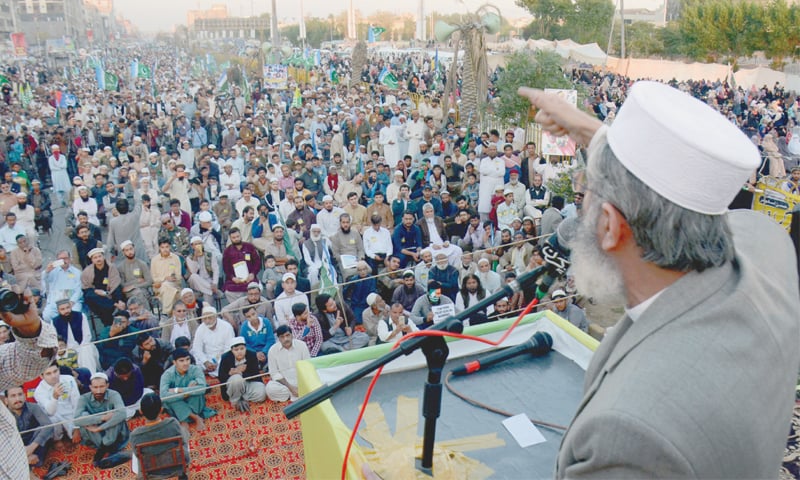In a recent address, Jamaat-e-Islami (JI) Emir Sirajul Haq launched a scathing critique against his political adversaries, shedding light on critical issues and outlining his party’s vision for the future. Haq’s remarks touched upon various aspects of governance, electoral integrity, and the trajectory of Pakistani politics.
Central to his discourse was the issue of providing free electricity up to 300 units, a promise made by the ruling government. Haq emphasized the urgency of implementing this commitment, asserting that it is essential for ensuring justice and alleviating the burden on the masses. He underscored the importance of fulfilling electoral promises, highlighting the disconnect between political rhetoric and tangible action.
Reflecting on the broader political landscape, Haq lamented the prevalence of what he termed as “rigged elections.” He expressed skepticism about the efficacy of electoral processes marred by irregularities, suggesting that genuine justice for the masses remains elusive under such circumstances. The reference to the 2018 general elections served as a poignant reminder of past grievances and underscored the need for electoral reform to restore public trust in the democratic process.
Despite the challenges and setbacks faced by his party, Haq struck a note of optimism regarding the future. He outlined his aspirations for the upcoming years, expressing confidence that 2028 and 2033 would herald a resurgence for the Jamaat-e-Islami. This forward-looking perspective resonated with his party’s commitment to long-term political engagement and strategic planning.
Addressing recent political developments, including the vote of no-confidence motion against the deposed premier, Haq emphasized the significance of political unity and collaboration. He highlighted the convergence of political forces at Mansoora during the pivotal moment of the no-confidence motion, underscoring the importance of collective action in pursuit of shared objectives.
Haq’s remarks encapsulate the evolving dynamics of Pakistani politics, characterized by challenges, aspirations, and the quest for meaningful change. As the leader of Jamaat-e-Islami, he remains steadfast in his commitment to advocating for the rights and interests of the Pakistani people while navigating the complex terrain of contemporary politics. His vision for the future underscores the enduring relevance of principled leadership and unwavering dedication to the ideals of justice, democracy, and national progress.


